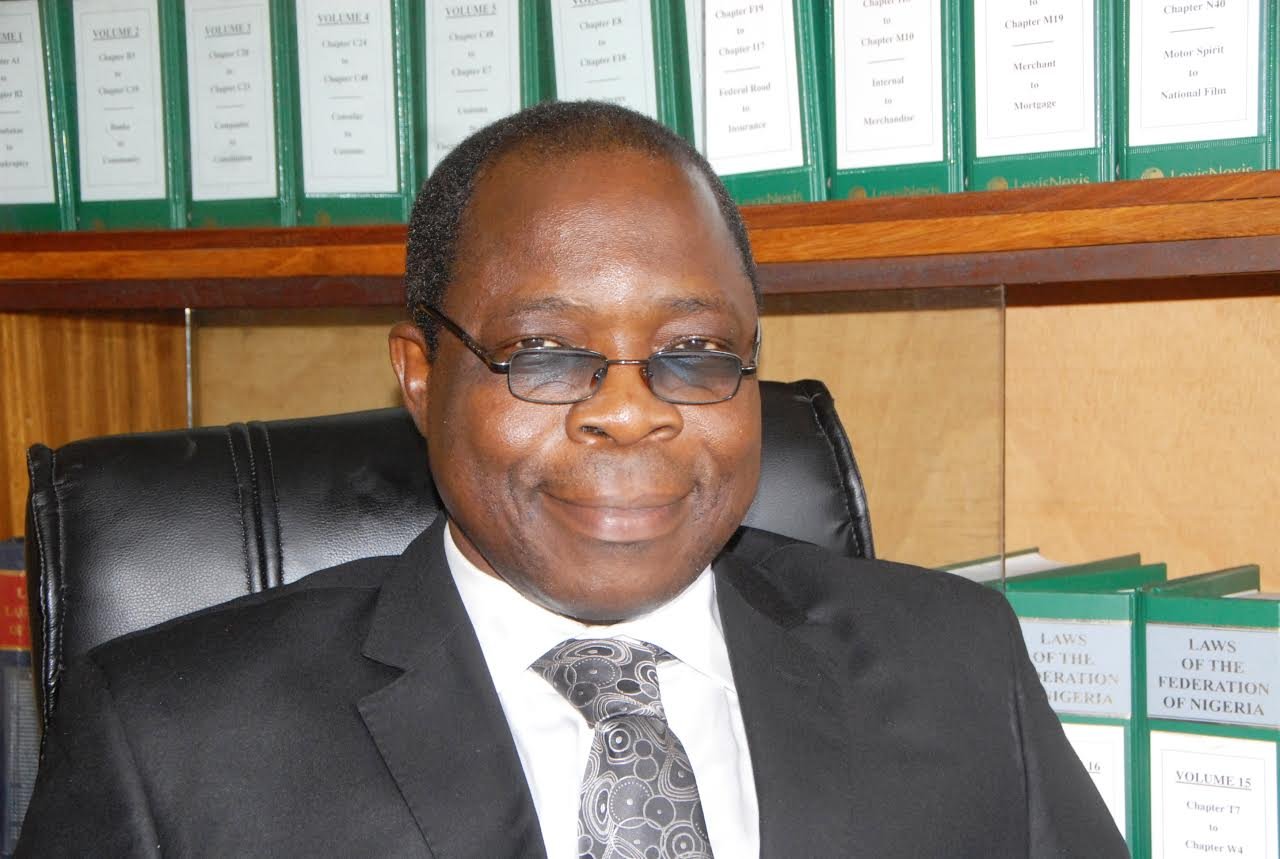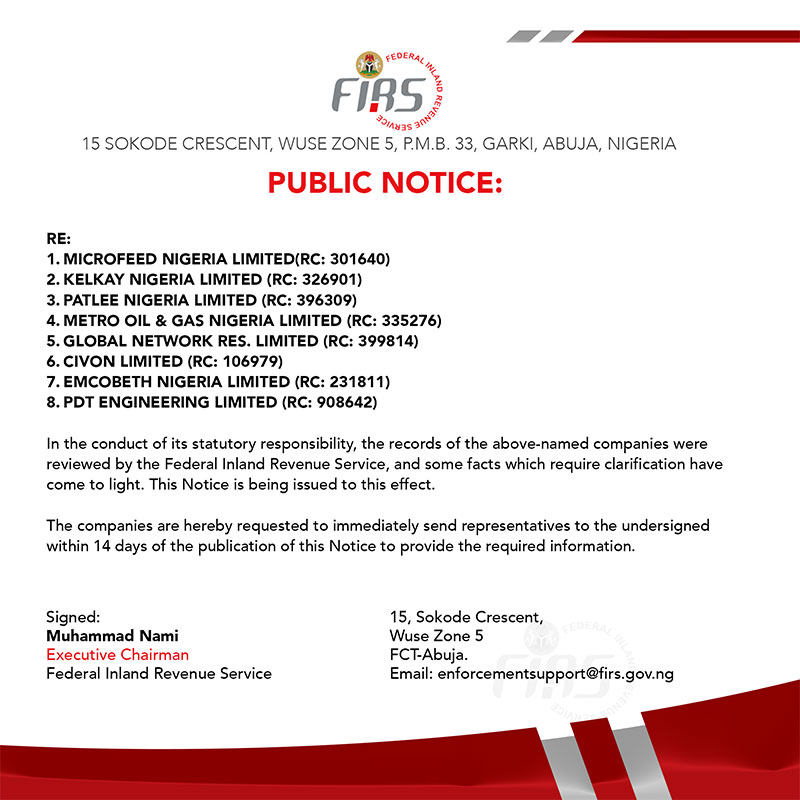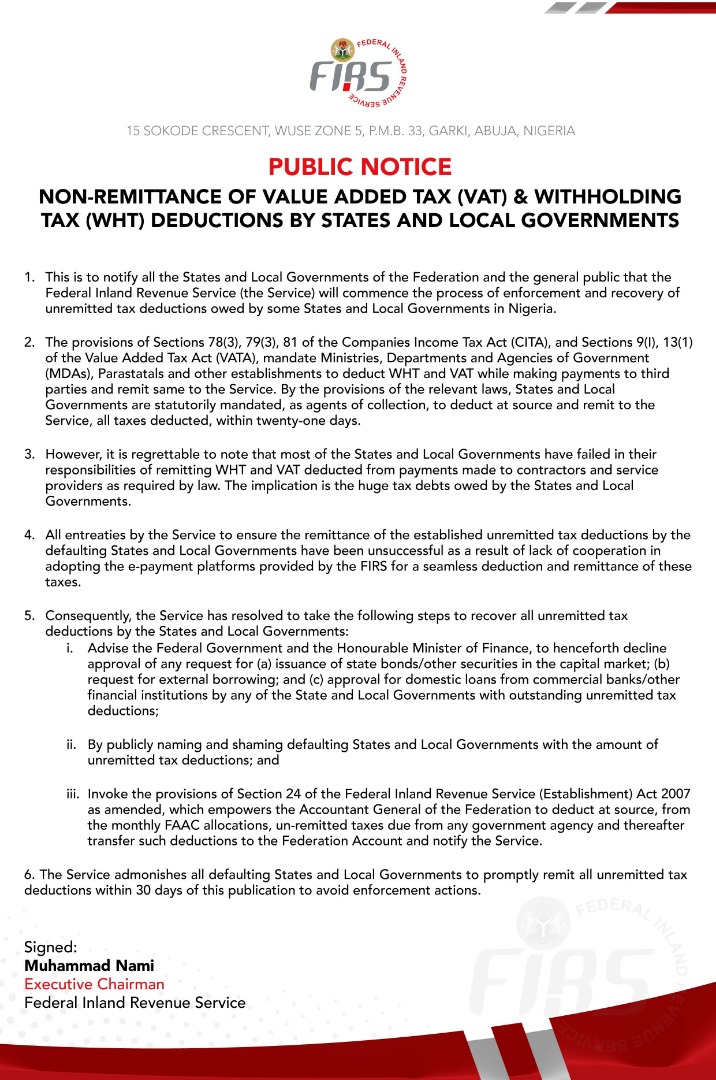
CORPORATE GOVERNANCE CHALLENGES IN NIGERIA: THE WAY FORWARD
A paper presented
By:
Mack Ogbamosa Esq. at a two-day Marketing Communications Summit organised by the Nigerian Institute of Public Relations (Lagos State Chapter) at Dover Hotel, Ikeja, Lagos, from Wednesday, March 21- Thursday, March 22, 2018.
INTRODUCTION
Corporate governance has become a burning issue all over the world. It became most pronounced in the United States especially after the collapse of two corporate giants- Enron representing the power sector and WorldCom representing the communication sector in 2001 and 2002 respectively. In addition, one of the world’s top five accounting firms –Arthur Andersen collapsed under the corporate scandal generated in Enron.They audited the accounts.
Our awareness of major corporate governance issues in Nigeria started with the discovery of overstatements in Cadbury Nigeria Plc accounts in 2007. Since then, many more have followed. But for us to properly understand the issues, we must first of all define corporate governance.
WHAT IS CORPORATE GOVERNANCE?
There are as many definitions of corporate governance as there are authorities on the subject.
To one of the authorities here in Nigeria, Wunmi Olayinka1 , corporate governance has two perspectives.
• The narrow perspective, and
• The broad perspective
The narrow view of corporate governance, according to the authors, deals with how structures within a corporate entity or enterprises receive their basic orientation and direction while the broad perspective is the center-point of both market economy and democratic society. It takes a holistic view of corporate governance to mean that issues of institutional, legal and capacity building as well as the rule of law in a given society are at the very heart of corporate governance.
From the point of view of Emmanuel Kachikwu,2 “Corporate governance are intended to regulate the conduct of directors, accountability to shareholders, recognition of the interest of other stakeholders and the need to encourage investment to flow where it could be most productive by raising in this case the Nigerian corporate governance standards tp best international practices in comparable jurisdictions. This would appear to be the reason and purpose of corporate governance.”
In the words of Bamidele Adebayo3,”corporate governance embodies the integrity of an organization. it represents what the organization stands for in the conduct of its business dealings which directly reflects the person of the individual member of the Board as any act of these individuals is deemed to be that of the organization when such act can be viewed as bad or good. He goes further to say that ‘effective corporate governance anchors ultimately on “meeting the demands” of all participating stakeholders in the fortune (or otherwise of every corporate entity’.
The greatest of the stakeholders are the owner- shareholders who Submit their governance authority to the Board of Directors (BOD) on behalf of the company (see CAMA 1990, Section 244)
United Kingdom (UK) Cadbury Committee report (1992)4 defines corporate governance as “the system by which companies are directed and controlled”. Corporate governance essentially involves balancing the interests of the many stakeholders in a company. These include its shareholders, management, customers, suppliers, financiers, government and the community.
The Organization for Economic Co-operation and Development (OECD)5 defines corporate governance as “the structures by which corporate objectives are set and the system for achieving their stated objectives and ensure compliance with corporate procedures.”
(OECD 1999, 2004 Report).
Corporate governance also provides the framework for attaining a company objective, it encompasses practically every sphere of management, from action plans and internal controls to performance measurement and corporate disclosure. (Investopedia-supra)
DIFFERENCE BETWEEN CORPORATE GOVERNANCE AND PUBLIC GOVERNANCE
At this stage, it is necessary to differentiate between Corporate Governance and Public Governance. This is because many students usually misunderstand the two as one. While corporate governance deals with incorporated companies that are registered under the Corporate Affairs Commission(CAC), public governance is about government and its institutions. The connection between the two is that most of the stakeholders in both cases are usually the same. Also of relevance is that the principles behind the two are virtually the same. As we shall find out later in this discussion, the level of effectiveness of public governance largely determines that of corporate governance. In other words, good public governance enhances corporate governance.
PRINCIPLES OF GOOD CORPORATE GOVERNANCE
Some of the principles of good corporate governance include:
• Information disclosures and transparency
• Accountability
• Rights and equitable treatment of shareholders
• Interest of stakeholders
• Role and responsibility of board of directors
WHO ARE THE CORPORATE GOVERNANCE STAKEHOLDERS?
Key stakeholders in corporate governance include:
• Creditors
• Suppliers| customers
• Directors
• Employers
• Owners(shareholders)
• Unions
• Employees
• Government
• Local community especially in areas where the corporate entities operate,
BRIEF HISTORY OF CORPORATE GOVERNANCE IN NIGERIA
The history of corporations is not indigenous to pre-colonial Nigerian. It was during the colonial era that the British introduced corporations into our economy. The laws and regulations guiding those corporations were originated from British or Anglo-Saxon system, the companies’ ordinances of 1922 followed the British company Act of 1948.
The provision in our 1968 Company Act are similar to the British provisions of 1948 Act. The first real indigenous attempt to regulate corporations in Nigeria was the promulgation of Companies and Allied Matters Act (CAMA, 1990)
The companies and Allied Matters Act (1990) is supposed to be our guide when discussing corporate governance issues in Nigeria but because of its inherent weaknesses especially in the area of Sanctions for non- compliance with its provisions, it becomes obvious that we have to look elsewhere.
The first major effort to address this issue in Nigeria was in 2003 after the United States had enacted their Sarbanes-Oxley Act 2002 with the setting up of the Atedo Peterside Committee by the Securities and Exchange Commission (SEC).
This committee could not do much as the provisions of its code were voluntary and not accompanied by any sanctions.
We later had several codes like the Securities and Exchange Commission (SEC Code (2006) of Corporate Governance, Central Bank of Nigeria (CBN) Code of Corporate Governance (2006), National Insurance Commission (NAICOM) Code of Corporate Governance before the Financial Reporting Council (FRC) of Nigeria introduced a unified code: National Code of Corporate Governance(NCCG) in October 2016. This code has now been suspended Although, the codes have most of the elements and basic principles of good corporate governance, there exists a gap between implementation, compliance and sanctions.
CORPORATE GOVERNANCE CHALLENGES IN NIGERIA
There are many challenges to the effectiveness of corporate governance in Nigeria. They range from corrupt practices, ownership structure, slow and inefficient judicial process to lack of enforcement mechanisms by regulatory bodies.
CORRUPTION
Corruption is one of the major challenges to the smooth practice of corporate governance in Nigeria. It is the widespread belief that you cannot get anything, especially from government/public officials without offering a bribe. Therefore, private business managers who need to obtain some permission or waivers from government cannot do so, unless through corrupt practices. Corruption permeates everywhere. It is the same practice even among highly placed persons in both public and private sectors.
Recently, even amid the anti-corruption war by this present administration, Transparency International recently rated us among 148 least corrupt countries in the world. This in defiant of all efforts by successive governments, especially from the military regime of late General Murtala Muhammed/Obasanjo to curb corruption in the country, not much has been achieved. This situation continues to endanger corporate governance practice in the country.
According to Yakasai6 “The greatest challenge to good corporate governance in Nigeria is corruption, it’s a real problem in any non-transparent developing nation whereby corporate executives milk their own companies and become ‘fat cats’ while the investors become ‘anaemic’, a situation very prevalent in Nigeria.”
OWNERSHIP STRUCTURE OF BUSINESSES:
As said earlier, the Nigerian private sector was dominated by British Companies) after British interests during the colonial era). Following political independence, one of the key economic liberation (development strategies immediately pursued by the then Nigerian government was to foster domestic ownership and control of the Nigerian Private Sector. Traditionally, this had significant implications for corporate governance. By restricting significant foreign ownership that potentially could have acted as external checks and balances, the resulting indigenous owners and major shareholders were able to perpetrate several corruption dealings at the expense of minority investors.
However, it must be noted that the restriction in foreign ownership through the Nigerian Enterprises Promotion Act of 1972 and 1977 still allowed foreign participation for up to 60% or 40% depending on the industry; Indeed, many foreign corporations were still able to devise strategies (such as buying stakes through local investors or indigenous firms to circumvent the regulations in order to hold percentages in Nigerian Corporations higher than those provided in the law (Achebe, 1989). It is thus important to balance the view that has restrictive foreign ownership could have impacted positively on Nigerian corporate governance system, particularly with examples of corporate scandals in
– Cadbury Nigeria 2007
– Halliburton scandal 2008
– Siemens bribery scandal 2009
No proof that majority foreign ownership could improve corporate governance in those corporations.
JUDICIARY:
The judicial system in Nigeria is not only slow, inefficient and expensive but has been tainted with corruption. Court cases take an average of 10 to 20 years before judgment is delivered. In most cases, parties to the cases are either too old or may have died. If the level of corruption in the judiciary has become so prevalent to the extent that Supreme Court Justices and Senior Advocates are being tried for involvement, how can an average Nigerian get justice from such a system?
THE POLITICAL ENVIRONMENT:
Although Nigeria attained political independence about 58 years ago, the country has been under military rule for 29 years.
As a developing democracy the dominant political class is those who have had access to power in the last 58 years. They control both the politics and the economy where they are not directly owners of companies, they own through their surrogates who are appointed directors.
This political class exerts a great influence on what happens in the boardrooms of directors.
Beyond this, most of the strategic businesses in Nigeria especially in the oil and gas sector are in the hands of the federal government; With a corrupt and bureaucratic civil service in control of such organizations, it is not difficult to tell on what would happen to corporate governance in such organizations.
LACK OF PROPER REGULATORY AND ENFORCEMENT MECHANISM:
Good corporate governance requires the strengthening of regulatory agencies as well as boosting the capacity of corporations to appoint competent board of directors.
A situation where the regulatory agency is weakened by political considerations and also where it is being saddled with too many functions as the case of the CBN does not augur well for regulation. while the CBN is supposed to regulate the banks, it is also responsible for initiating monetary policies, issuing currency, advise the government on fiscal and monetary matters, manage the country’s payment and settlement system, formulate banking rules, serves as banker to other banks and ensure rapid economic development (Wilson 2006, Inyang 2009).
This clearly overburdens the CBN and distracts it from its core duties and responsibilities.
IGNORANCE OF MINORITY SHAREHOLDERS:
Most minority shareholders are illiterate and ignorant of the rules guiding business practices.
They not only found it difficult to interpret the figures but also do not understand business ethics. They therefore are not in a position to question the board and management on the malpractices and sharp practices being perpetrated in the companies where they have interest.
POVERTY:
In spite of all our God-given natural resources, Nigeria is one of the poorest nations in the world.
What naturally follows is that people are subjected to diseases, hunger and untimely death. Is it any wonder that Nigeria has the highest number of religious followers in the world? If we our leaders cannot fix our problems with what God gave us, the followers can at least feed themselves with the word of God, hence our religious institutions are the most populated in the world.
This level of poverty will make it difficult if not impossible for the average Nigerian to participate actively in whistle blowing which is part of the ways good corporate governance can be promoted.
LACK OF OBSERVANCE OF RULE OF LAW;
Despite having enjoyed democracy for about 30 years out of 58 years of independence, our political environment is largely dominated by a military mentality.
This mentality which hardly obeys the rule of law permeates most of our institutions and these include corporate organizations. Without following the basic rule of law, which include equality before the law, SUPREMACY OF THE LAW AND respect for individual human rights, no corporate organization can be said to be fair. They don’t even obey their rules of corporate governance.
ALIEN CORPORATE GOVERNANCE STRUCTURE:
As stated earlier, Nigeria corporate governance structure had its origin in the colonial era. They witnessed the dominance of British companies, subject to British laws, but in the Nigerian business environment. “As a result, issues relating to the conduct and governance of Nigerian corporations, which are combined within the provisions of the company legislation have their roots in the country’s colonial past” (Okike 2007)7.
Nigeria, thus inherited an Anglo-Saxon defined framework of corporate governance. Furthermore, while the country’s attainment of independence led different boardroom squabbles among directors, management to the replacement of the companies ordinance of 1922 by the companies Act of 1968, the UK corporate law remained a huge influence, for example the 1968 company Act extensively the UK companies act of 1948 (Okike 2007)
It has indeed been argued that despite the several company law reforms over the years, the legal system of corporate governance in Nigeria has remained fashioned along the Anglo-Saxon model.
THE WAY FORWARD
For us to observe proper corporate governance in Nigeria, there is the need to do the followings
MAKING PUBLIC GOVERNANCE RESPONSIBLE:
From our discussions so far, it is obvious that the level of development of our public governance has a negative effect on corporate governance in the country. If public governance has not been responsible and does not obey the rule of law, it will reflect on the type of corporate governance we practice .
We also observe that poverty and unemployment are serious threats to corporate governance in the country. People who are poor and unemployed should not be expected to have the confidence to be whistle blowers; they fear they are not protected. This is the situation of the average Nigerian.
Meanwhile, there is a provision in Chapter 2 of our 1999 constitution which says that he should be educated and given employment by government but the same constitution says if he is not provided with these services, he cannot sue the government for such denial. This, This writer believes it is wrong.
I am of the opinion that for us to have patriotic Nigerian citizens, the provisions in Chapter 2 of the constitution under Fundamental Objectives and Directive Principles of State Policy should be made enforceable and justiciable. This is the one way government can be made responsible to the citizenry.
When that is done, other elements of the society like corporate world will take a cue from there.
UNIFICATION AND ENFORCEMENT OF CORPORATE GOVERNANCE CODES:
As stated earlier, we already a body, the FRC working on a unified code of corporate governance. The code is only suspended. In fact, FRC is reviewing the code. We recommend that such an exercise be encouraged, so that Nigerians can have a unified and enforceable code. This will go a long way to enhance corporate governance practice in the country.
INDEPENDENT AND EFFECIENT JUDICIARY:
It is well noted that the present government is fighting corruption in the judiciary. For the first time in the history of the judiciary, Supreme Court Justices and Senior Advocates are being tried for corruption. This is commendable. But this exercise must be done in accordance with the rule of law.
There is also the need to create special courts for corporate offences. We once had special tribunals for failed banks. This will help in speedy dispensation of justice.
Above all, there is the need to improve the welfare of the judiciary. The judges and other officials must have enhanced welfare packages to attract hardworking professionals into the service.
NEED TO PROTECT PRIVATE CAPITAL.
Private capital is necessary for economic development of the country but no development can come without good corporate governance .In the words of Arthur Levitt8, a former Chairman of the United States Securities And Exchange Commission, “If a country does not have a reputation for strong corporate governance practices, capital will flow elsewhere, if investors are not confident with the level of disclosure, capital will flow elsewhere, if a country opts for lax accounting and reporting standards, capital will flow elsewhere. All enterprises in that country, regardless of how steadfast a particular company’s practices may be, suffer the consequences.”
GOOD PUBLIC GOVERNANCE
To promote corporate governance in Nigeria, we must make public governance fair, accountable and responsible. No strong corporate governance can emerge from a public governance system that is undisciplined, corrupt and unaccountable. This is especially so when the State in Nigeria owns virtually everything. ONCE YOU DO NOT BELONG TO THE POLITICAL CLASS OR YOU ARE NOT AN AGENT TO THEM , YOU ARE A LOSER. In the words of Ayodele Adelaja Adekoya9, “The challenges of good corporate governance in Nigeria are more external than internal to corporations and effort to address these challenges must come from the public governance spectrum. It must be initiated from the country’s legal and regulatory frameworks not from the boardrooms of corporations. Good corporate governance is predicated by good public governance and a political system that ensures public accountability is necessary for ensuring good corporate governance.”
CONCLUSION
The level of sophistication of a society and the degree of its adherent to good principles of public governance largely determines its level of corporate governance. A country that does not observe the rule of law and whose citizens are very poor is not likely to be good at promoting corporate governance.
Therefore, there is need for Nigeria to raise its game in terms of its observance of good public governance principles in order to have strong corporate governances.
REFERENCES
1. Wumi K Olayiwola : Practice and Standard of Corporate Governance in the Nigerian Banking Industry by Wummi K Olayiwola. http://www.cesent.org/jornal/
2. Emmanuel Kachikwu : (Forward to F I Ajogwu, Corporate Law in Nigeria: Law and Practice, Centre for Commercial Law Development (CCLD) 2007
3. Bamidele Adebayo: Enforcement of Corporate Governance Codes: Through Voluntary Compliance or Legislation ? Journal Of Corporate Governance vol 7 No 2 November 2015 PP1510-1527.
4. Cadbury A. (1992), Report of the committee on Financial Aspect of Corporate Governance, London ,U.K: GEE& Co. Limited available http://www.ecgi.org/codes/
5. (OECD 1999, 2004 Report).
6. Yakasai G.A (2001) corporate governance in a third world country with particular reference to Nigeria, corporate governance: An International review 9(3):239-240
7. Okike E.N.M (2007) “Corporate Governance in Nigeria: the Status Quo” ,Journal of Corporate Governance : (15) 2 173-193
8. Quoted from Journal of Corporate Governance Vol 7, No 2 November 2015, page 1525.
9. Ayodele Adelaya Adekoya: Understanding the Challenges to Good corporate Governance in Nigeria , Journal of Corporate Governance Vol 3, 1 May 2011 pp 358-386.
About the Author
Mack Ogbamosa is a legal practitioner/communications consultant with background in Law, Political Science, Journalism and Public Relations.
He started his career as a Sub Editor in the then largest circulating newspaper in Nigeria- The DAILY TIMES in 1984. While there, he rose through various senior editorial positions such as those of Chief Sub Editor, Production Editor and Night (Alternate) Editor before resigning in 2002. He thereafter attended the Nigerian Law School, Abuja and was called to the Bar in 2004.From 2004 to 2009, he worked as a solicitor and advocate under the law firm of Tony Momoh & Co, where he headed media, industrial relations and corporate law departments.
He is the principal Partner of Mack Ogbamosa & Co, a firm that specializes in media laws, constitutional laws, corporate laws as well as financial laws and regulations.
He has consulted for several organisations including the Nigeria Employers’ Consultative Association(NECA), Association of Food, Beverage and Tobacco Employers (AFBTE) and the Financial Reporting Council (FRC)of Nigeria Ogbamosa, who also holds degrees in political science and law, belongs to many professional bodies including the Nigerian Bar Association (NBA) and the Nigerian Institute of Public Relations (NIPR)
He is a co-founder of the International Organisation for the Promotion of Honesty.




























